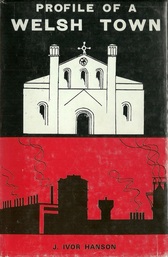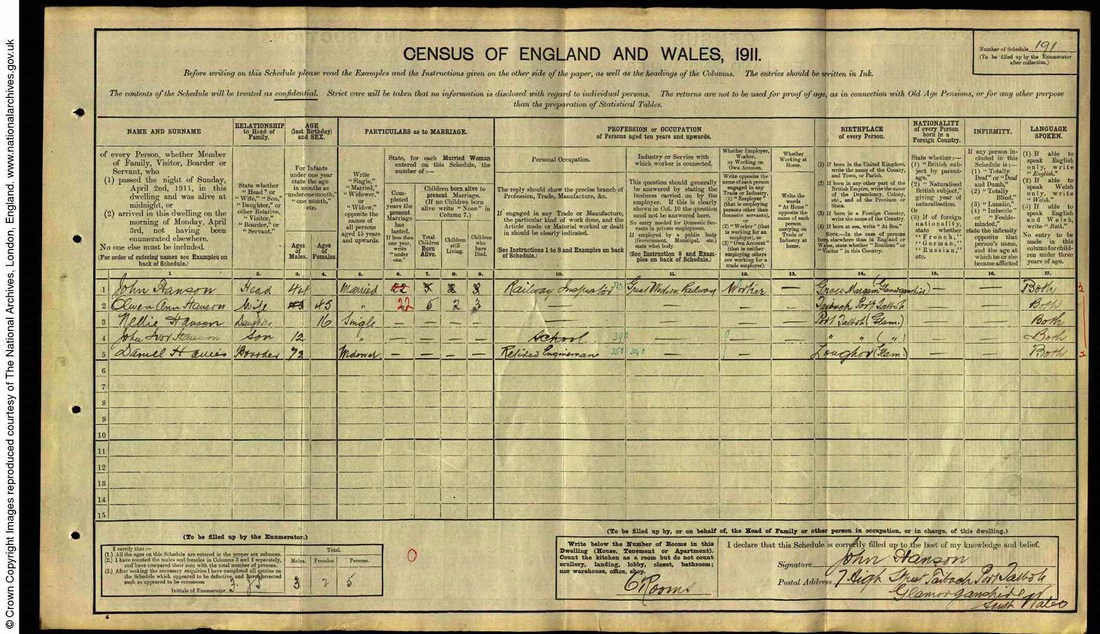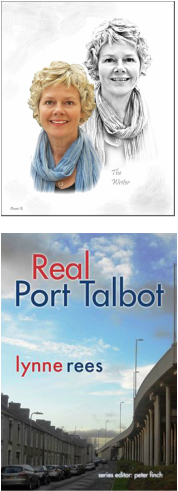Many of you will be familiar with J Ivor Hanson's books about Port Talbot. Profile of a Welsh Town was published in 1968 and followed in 1971 by Outline of a Welsh Town. Both can be found in the town's libraries.

Hanson was born in 1898. His father was from Groes, Margam, his mother from Taibach. In the 1911 census, when Hanson was 12, he was living with his parents, his older sister, Nellie, and his maternal grandfather, Daniel Harris, at 7, High Street, Taibach. And it's an event at that house that he remembers in Chapter 2 of Profile, 'Miss Emily Charlotte Talbot (1840-1918)' in which he discusses the fate of 99 year (or three lives) leasehold properties, built on Margam Estate land, when the lease was about to expire:
'I was a very young lad when an agent drove up in a horse-drawn trap, marched through our house in High Street (now Commercial Road) without first knocking, and plunged a jacknife into the sash of our kitchen window. When I sought an explanation from my grandfather he told me that under the terms of the lease, his house had not only to go to the landowner, but it had to go in good condition, and that henceforth he would have to pay rent for his own house, to which he had added at his own expense gas installations and a shop window. It was the first time I ever saw a man shed tears...'
To read the words of someone who was alive and old enough at the time to clearly recall the Talbots, and the feudal system that was accepted as the norm, feels like a gift. This is history, vivid and charged with emotion, conjured into the present moment for us. Hanson died in 1993: he was truly the story teller of a century.
'I was a very young lad when an agent drove up in a horse-drawn trap, marched through our house in High Street (now Commercial Road) without first knocking, and plunged a jacknife into the sash of our kitchen window. When I sought an explanation from my grandfather he told me that under the terms of the lease, his house had not only to go to the landowner, but it had to go in good condition, and that henceforth he would have to pay rent for his own house, to which he had added at his own expense gas installations and a shop window. It was the first time I ever saw a man shed tears...'
To read the words of someone who was alive and old enough at the time to clearly recall the Talbots, and the feudal system that was accepted as the norm, feels like a gift. This is history, vivid and charged with emotion, conjured into the present moment for us. Hanson died in 1993: he was truly the story teller of a century.
Both of Hanson's books were never far from my reach when I was researching and writing Real Port Talbot: invaluable repositories of information about our town, they cover both wars, the lives of the people who lived and worked here, the things they loved and feared, what they lost, what they laughed at and celebrated.
Search them out for yourselves. Enjoy them. And think about the stories you hold inside you too. Why not write them down, or record them, or ask someone to help you with one or the other. We are living the history that people in the future may want to read about. Let's preserve it and keep it safe for them.
Search them out for yourselves. Enjoy them. And think about the stories you hold inside you too. Why not write them down, or record them, or ask someone to help you with one or the other. We are living the history that people in the future may want to read about. Let's preserve it and keep it safe for them.



 RSS Feed
RSS Feed